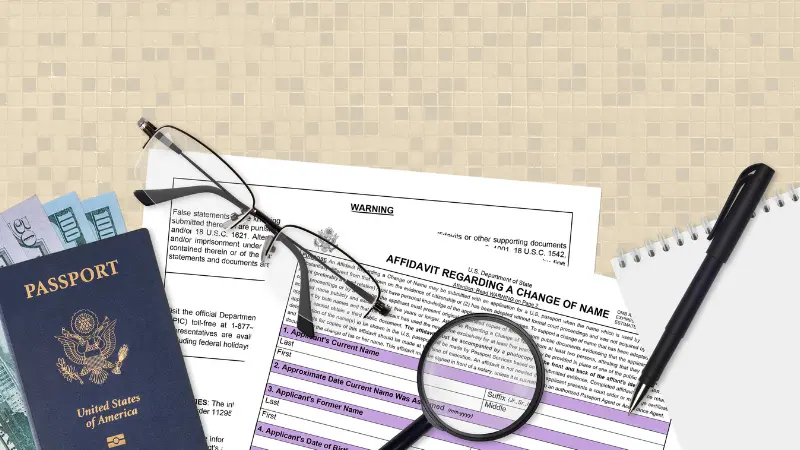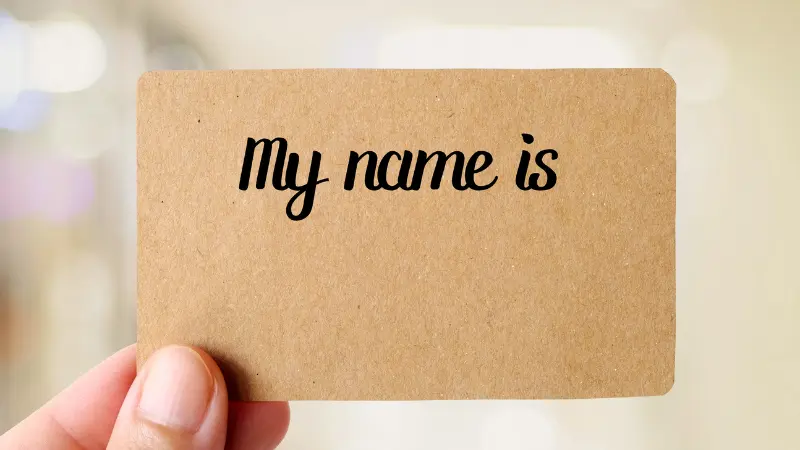Changing one’s name is a common practice many individuals undertake for various reasons. However, for ex-offenders, the process of changing their names can be quite challenging and complicated. Convicts often face legal restrictions that can hinder their ability to answer new names. Right here, we will talk about the most common question, can felons change their names? We will review eligibility requirements, discuss the impact of a criminal record on the name change process, and outline the steps required to complete a name change. Additionally, we will examine the potential challenges and obstacles that felons may encounter during the name change process and the impact that changing names can have on ex-cons’ employment and housing prospects. Finally, we will discuss the role of legal representation in felons’ name change cases and the importance of seeking professional guidance when attempting to change one’s name as a felon.
Can Felons Change Their Names?

Changing one’s name can be a complex legal process, especially for individuals with a criminal record. While many people change names for various reasons, such as marriage or personal preference, felons seeking name changes may face unique challenges.
Definition of Name Change for Felons
A name change is the legal process of changing one’s name to a new name. For felons, changing their name means seeking a court order to legally change their name.
Legal Considerations for Felon Name Changes
Before changing their names, felons must consider the potential legal consequences of their name change. For instance, if a felon changes their name to avoid legal obligations or to hide their criminal history, they could face legal charges. Additionally, felons with outstanding debts or child support obligations must continue to make payments under their new name.
Requirements For Felons Seeking Name Change
-
Who Can Change Their Name?
Any adult with a criminal conviction can change their name if they meet the legal requirements and follow the proper procedures.
-
What Are the Legal Requirements?
An ex-con who wants to change their name must file a petition with the court, pay a filing fee, and provide the court with a valid reason for the name change. The reason can be personal or professional, but it must not be done with the intention of fraud or to avoid legal obligations. In most states, felons seeking name changes must provide public notice of their intentions to alter their names. This may involve publishing a statement in a newspaper or posting notices in public places.
-
What Are the Costs of Changing a Felon Name?
The cost of changing a felon’s name varies depending on the state and the court fees. Generally, the cost can range from $150 to $500.
Step-by-Step Guide To Name Change

- Changing a felon’s name begins with filing a petition with the court. The petition must include the reason for the name change and the felon’s criminal history. The court may also require the felon to notify any interested parties of the name change, such as banks, credit card companies, or child support agencies. After the petition is approved, the felon must publish a notice of the name change in a local newspaper for a specific period. Finally, the court will issue a new name change order.
- After the petition is filed and public notice is provided, the petitioner must attend a court hearing to obtain approval for the name change. If the judge approves the petition, the petitioner will receive a court order granting the name change. This order can then be used to update official documents, such as driver’s licenses and passports. In conclusion, while the process of changing names for felons can be complex, it is possible with careful planning and adherence to legal requirements. Felons seeking name changes should consult with an attorney familiar with the laws in their state to ensure they understand their eligibility and what steps they need to take.
- The process of changing a felon’s name can take several months, depending on the state and the court’s caseload. The process may take longer if there are objections to the name change or if the court requires additional information.
Implications Of Changing A Felon Name
Changing one’s name can be a complicated process, especially for felons with a criminal history, it can also have a great significant impact on your employment and housing prospects. While ex-offenders can alter their names, it is important to understand their implications.
-
The Importance Of Updating Name Records For Background Checks
When you change your name, updating your name records for background checks is important. This can help to ensure that your criminal background is accurately reflected in your record. Failing to do so can result in employers or landlords discovering your criminal background through other means, which can negatively impact your chances of employment or finding housing.
-
Impact On Employment And Housing
Changing one’s name can also impact employment and housing opportunities. Employers and landlords often conduct background checks on applicants, and a criminal record can be a barrier to obtaining employment or housing. Changing one’s name may not necessarily remove this barrier since a person’s criminal record is still tied to their unique identifiers.
Examples Of Famous People Who Changed Their Names
- Mark Zuckerberg, the founder of Facebook, legally changed his name from Mark Elliot Zuckerberg to Mark Zuckerberg in 2005. This was not due to a criminal history, but rather to create consistency with his public persona.
- Actor and director Woody Allen legally changed his name from Allan Stewart Konigsberg. This was not due to a criminal history either but rather to create a stage name that was easier to remember.
Reasons Why A Felon May Want To Change Their Name
-
Personal Reasons
Felons may want to change their name for personal reasons such as starting a new life or distancing themselves from their past. A new name could also help felons leave behind negative associations and stigmas.
-
Professional Reasons
A new name could also help felons with professional endeavors such as job applications and interviews. Changing their name could help reduce the risk of employers finding their criminal history.
The public perception of convicts who change their names can vary. Some may see it as an attempt to start anew and distance themselves from their past, while others may view it as an attempt to deceive or hide their past.
Challenges Felons Face In Name Changing
-
Public Objections To Name Change Requests From Felons
In some cases, felons may face objections from the public when requesting a name change. Members of the public may object to the name change if they have concerns about the felon’s criminal past or if they believe that the name change is an attempt to avoid legal repercussions.
-
Legal And Administrative Hurdles In Completing A Felon Name Change
Completing a name change as a felon can also involve legal and administrative hurdles. You may need to obtain a court order, provide fingerprints, and pay fees. The process can also be time-consuming and may require you to attend court hearings or provide additional documentation.
-
Challenges In Meeting Name Change Eligibility Criteria
Felons may face challenges in meeting the eligibility criteria for changing their names. Depending on the state where you live, there may be specific requirements that you need to fulfill. These can include being a resident of the state for a certain time, providing a valid reason for the name change, and meeting minimum age requirements.
Read about:
The Importance of Lawyers in Felon Name Change Cases
Working with a lawyer can be beneficial when seeking a name change as a felon.
A lawyer can provide guidance and support throughout the name change process. They can help you understand the legal requirements for a name change, provide assistance with the paperwork, and represent you in court if necessary.
Lawyers can also help felons navigate the legal processes involved in changing their names. They can help you prepare your case, represent you in court, and ensure that all necessary paperwork is filed correctly and on time.
Summary

By understanding the challenges and obstacles involved in this process, you can make informed decisions and take steps to protect your employment and housing prospects. If you are a felon looking to change your name, it is important to seek professional guidance. Working with a lawyer can help you navigate the legal hurdles and ensure that your name change is completed successfully.
Eligibility requirements, the impact of criminal records, and potential challenges are just a few of the factors that must be considered. However, with the help of legal representation and professional guidance, felons may be able to navigate the name change process successfully. In conclusion, changing one’s name as a felon can be a complex and challenging process, always remember to research the requirements, seek legal advice, and pay attention to the potential impact on your employment and housing prospects.